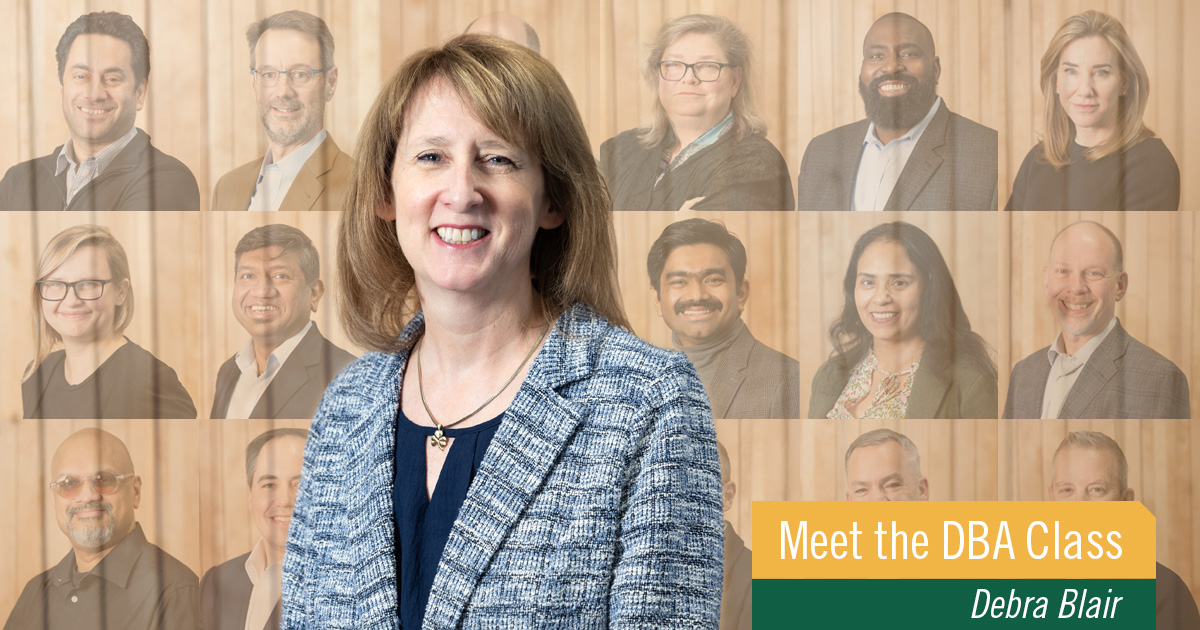How a Writing Professor Embraces AI at Babson

Since the release of ChatGPT in late 2022, Associate Teaching Professor Kristi Girdharry has become a pivotal figure in introducing and navigating the complexities of AI-powered tools within Babson’s classrooms and beyond.
Now, Girdharry is preparing for one of her most anticipated projects—an upcoming course, Writing with Robots: Authenticity, Ethics, and AI, which launches this spring. The class invites students to explore a variety of genres, writing both with and without AI, while grappling with the ethical implications of using such tools. “It’s a space for students to critically engage with AI and think deeply about what it means to be a writer and learner in today’s world,” she explains.
BABSON MAGAZINE: Read the complete Winter 2024–2025 issue.
While teachers already have the answers in most classes, Girdharry says, “In this class, there’s no answer. We have to work through it together. And that is challenging and difficult, but I also really believe that’s where real learning happens.”
Girdharry, who also serves as the director of Babson’s Writing Center, began experimenting with generative AI shortly after ChatGPT was released. But despite early fears about the impact of generative AI on traditional forms of writing, she has always viewed the new technology as a unique opportunity.
“There was some stress about it, but I saw it as kind of a cool moment for us in the field of writing to say, ‘We’ve been studying this for a long time, and we have ideas about how to adapt,’ ” she says.
Girdharry quickly embedded AI exercises into her courses. By spring 2023, she incorporated ChatGPT into her Rhetoric of Social Media class, tasking students with using the tool to generate questions about musical artists.
“We think about AI like a house with many doors, so we encourage faculty to enter through the door that makes sense to them—whether that’s AI for research, teaching, or entrepreneurship.”
Kristi Girdharry, Writing Center director, on The Generator
The experiment revealed AI’s limitations, but also sparked valuable insights. In one notable instance, a student researching Nigerian artist Burna Boy found that the AI’s flawed suggestions led her to explore forums on Nigerian Pidgin, a discovery that informed and deepened her project. The moment, Girdharry notes, was a reminder of AI’s potential to open new pathways of knowledge when used critically.
Last fall, Erik Noyes, the Michael London ’92 and Stephen H. Kramer ’92 Term Chair in Entrepreneurship, asked Girdharry to lead the AI for Research & Writing research group at Babson’s AI lab, The Generator. The group helps Babson community members explore AI’s implications across disciplines.
“We think about AI like a house with many doors,” Girdharry explains, “so we encourage faculty to enter through the door that makes sense to them—whether that’s AI for research, teaching, or entrepreneurship.”
These interdisciplinary efforts culminated in an AI teacher training program, now in its third iteration. Faculty from various departments share their experiences and challenges using AI in their classes.
Girdharry, who came to Babson in 2019 after a family visit to campus piqued her interest, says her work helping the Babson community adapt to AI has been unexpected, but deeply rewarding.
“I feel so grateful to be at the table,” Girdharry says. “It makes my work feel really meaningful.”




